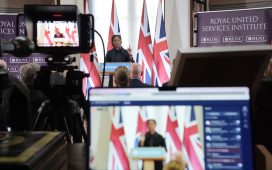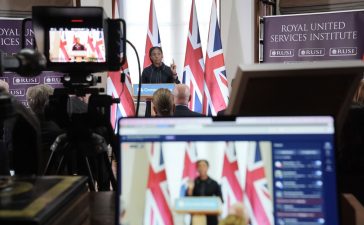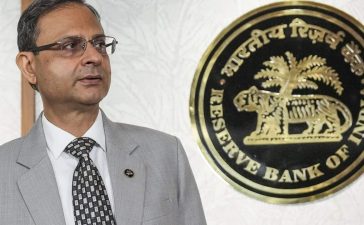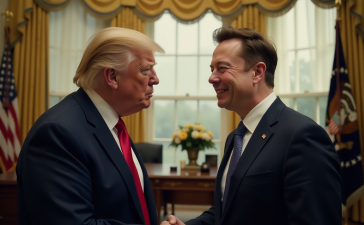Starmer says ‘standing army’ of specialist officers will be set up to deal with riots
Keir Starmer has said a “standing army” of specialist police officers would be set up to deal with rioting and unrest, the PA news agency reported.

“We will have a standing army of specialist public duty officers so that we will have enough officers to deal with this where we need them,” the prime minister said, adding that “we will ramp up criminal justice. There have already been hundreds of arrests, some have appeared in court this morning.”
He added:
I have asked for early consideration of the earliest naming and identification of those involved in the process who will feel the full force of the law.
The prime minister also warned against illegal online activities.
“I have been absolutely clear that the criminal law applies online as well as offline,” he said.
Whatever the apparent motivation, this is not protest, it is pure violence and we will not tolerate attacks on mosques or our Muslim communities. So the full force of the law will be visited on all those who are identified as having taken part in these activities.
Key events
Families have gathered at a vigil in Southport a week on from the murders of Bebe King, Elsie Dot Stancombe and Alice Dasilva Aguiar.
Children blew bubbles as others placed flowers and heart-shaped balloons in front of The Atkinson arts centre in remembrance of the victims of the stabbing attack.
Staffordshire Police said a dedicated team of detectives has been tasked with reviewing all of the available evidence relating to disorder in Stoke-on-Trent and Sunday’s attack on a hotel in Tamworth.
The force, which has already charged two suspects with offences, has also set up a major incident public portal (MIPP) for people to share information with police.
It said in a statement: “Using our own surveillance, as well as a vast array of videos that have been shared on social media, we’re continuing to trawl rigorously through the evidence to take robust action against those involved.
“Our officers have been acting valiantly to protect the public. Six of them have been assaulted, which is completely unacceptable. Thankfully, none of their injuries are serious.”
Assistant chief constable Stuart Ellison said: “Police forces across the country all have the same message for the individuals involved in these incidents: you are being pursued and we are working around the clock to find you.
“Setting up the portal is going to give us a streamlined way of gathering all of the evidence required to track down those responsible and speak to the public who will no doubt have vital information that can help us.
“If you were in Stoke-on-Trent or Tamworth this weekend, tell us what you know. Do you have any footage of people in the area or information that can identify them?
“I’d like to assure local communities in Staffordshire that our efforts to find those involved are substantial. Our inquiries are progressing and we’re ready to deploy proactively to keep our communities safe.”
Anyone who posted on social media assisting or encouraging the disorder on Britain’s streets in recent days could be prosecuted over the violence, even if they were were not at the scene, a legal expert has warned.
Mark Jones, partner at law firm Payne Hicks Beach, said individuals “do not need to be present when the crime itself is carried out, yet can be as guilty as the person who commits the crime itself”.
The warning comes as Keir Starmer said anyone whipping up violence online will face “the full force of the law”.
After chairing an emergency meeting of the Cobra committee on Monday morning, the Prime Minister said “the criminal law applies online as well as offline”.
Jones added: “People who assist or encourage another, or others, to commit a crime are known as accessories or secondary parties.
“They do not need to be present when the crime itself is carried out, yet can be as guilty as the person who commits the crime itself.
“In other words, you have a principal who carries out the offence and the secondary party who assists or encourages the commission of the offence by the principal.
“Secondary liability principles can be applied to most criminal offences, with offences of violence and public order being common examples.
“Social media provides a platform for people to misbehave and to commit acts which are criminal. It is necessary to look beyond the use of social media as the medium and to the offence being committed.”

Emine Sinmaz
Riots have spread across numerous cities and towns in England, and in Belfast in Northern Ireland, over the last week in the worst outbreak of civil disorder in Britain for 13 years. More than 400 people have been arrested since anti-immigrant and far-right unrest erupted after the killing of three young girls in Southport in north-west England last Monday.
What has sparked the violence?
Bebe King, six, Elsie Dot Stancombe, seven, and Alice Dasilva Aguiar, nine, were killed in a multiple stabbing at a Taylor Swift-inspired dance class in Southport on 29 July. Eight other children sustained knife wounds with five left in a critical condition. Two adults were also critically hurt.
Axel Rudakubana, 17, who was born in Cardiff and had been living in Banks, a village in Lancashire a few miles north of Southport, has been charged with three counts of murder and 10 counts of attempted murder.
Before the suspect’s identity was confirmed, false claims proliferated online that he was a Muslim asylum seeker who had arrived in the UK by boat. In the wake of these messages, members of the far right – guided by social media – have gathered in towns and cities across the country with some shouting anti-immigration and Islamophobic slogans. Counter-protests have also built up with clashes between opposing groups.
Where are the riots taking place?
Hundreds of rioters descended on the seaside town of Southport last Tuesday, where people were still grieving, barely 36 hours after the three girls were killed. More than 50 police officers were injured in the clashes, which targeted a mosque a short walk from the scene of the atrocity.
The next day, disturbances spread to London, Manchester in north-west England, Hartlepool in the north-east, and Aldershot in the south. The disorder continued over the weekend with clashes on Saturday across England in Liverpool, Blackpool, Hull, Stoke-on-Trent, Leeds, Nottingham and Bristol, and also in Belfast in Northern Ireland.
Police officers will have their rest days cancelled as they face violence some have never seen before amid the riots – and they will become “fatigued” at some point, the Police Federation said.
Broken bones and concussion are among the injuries police officers have suffered over six days of disorder which has seen hundreds of arrests in the wake of a knife attack in Southport last week which left three girls dead, the federation said.
Tiffany Lynch, acting national chairwoman of the Police Federation of England and Wales, told Times Radio: “What we’re actually seeing and our officers out there that are working incredibly hard for extended periods of duty, is unprecedented, and the violence that they’re actually facing, some have never faced before in their careers.
“We know of recorded injuries where we’ve had broken bones, concussion and such like, but we’re also seeing that these officers are working extended long hours and with the level of violence that they’re facing, they will be becoming fatigued at some point.”
She added the officers “will be having their rest days cancelled”, and will be “pulled off shifts or specialised departments to actually prioritise what is a national priority”.

Denis Campbell
The riots have made many of the NHS’s multi-cultural workforce feel “afraid and unwelcome” as a result of the riots, the boss of the health service in England said.
Amanda Pritchard, the chief executive of NHS England, spoke out in the wake of several reported incidents of NHS staff being targetted by protestors as a result of their ethnic background.
Meanwhile, The Royal College of Nursing (RCN) called on ministers to ensure that anyone who targets NHS nurses “pays a very heavy price”.
Pritchard used her weekly email to NHS leaders to praise staff’s response both to last week’s stabbings in Southport and also the violent events since in parts of England and Belfast.
“We shouldn’t let [their] dedication to duty disguise the fact that for many NHS workers, seeing this flare-up of racism will leave them feeling afraid and unwelcome”, Pritchard wrote.
Hospital bosses have told Pritchard that many of their staff have been left feeling anxious about the protests and continuing violence in places such as Rotherham, Sunderland and Tamworth. Many feel scared when leaving their home to come work, Pritchard has also heard.
The British Islamic Medical Association said that many of its members have been threatened in recent days.
In a statement on its website it said that: “Over the past few days BIMA has heard from many of our members who have felt scared and been threatened. A Muslim nurse was caught up in the violence when leaving the hospital, having to navigate Islamophobic slurs.
“Another spoke of her fear at work: ‘As a visibly Muslim woman I feel un safe. Seeing racists and Islamophobes emboldened like this is scary.
‘I now worry about my safety every day that I am on the frontline. It could be a patient or, worse, a colleague.”

Jessica Elgot
Downing Street has criticised comments by Elon Musk who posted on X that “civil war is inevitable” under a video of violent riots in Liverpool.
Keir Starmer’s spokesperson said the violence came from a small minority of people who “do not speak for Britain” and said the prime minister did not share the sentiments of the billionaire, who has previously been criticised for allowing far-right figures back on to his social media platform.
“There’s no justification for comments like that,” the spokesperson said. “What we’ve seen in this country is organised, violent thuggery that has no place, either on our streets or online.
“We’re talking about a minority of thugs that do not speak for Britain, and in response to it, we’ve seen some of the best of our communities coming out and cleaning up the mess [and] the disruption of those that don’t speak for our country, and we’ve seen the response for people that do speak for our country. I think you can tell from that that the prime minister does not share those sentiments.”
Starmer warned after a Cobra meeting with senior cabinet ministers, police chiefs and Ministry of Justice officials that the police would pursue those organising online incitement.
Judge describes scenes of violence in Belfast as ‘absolutely disgraceful’
Judges have condemned the recent violent scenes as the latest wave of suspects arrested after protests and riots across the country appeared in court.
Several suspects have faced charges in court on Monday, after a sixth day of disorder which broke out in the wake of a knife attack in Southport last week which left three girls dead.
One judge described scenes of violence in Belfast as “absolutely disgraceful” as he refused bail to two men accused of taking part in disorder which followed an anti-immigration protest in the city on Saturday.
The Northern Ireland assembly is set to be recalled on Thursday at 12 noon to discuss a motion condemning criminal damage and targeting of businesses in recent days.
In another court, a boy aged 14 admitted violent disorder after he was seen by police officers to be among a group of young people setting fireworks off in the direction of members of the public and a police carrier.
Deputy district judge Liam McStay told Belfast magistrates court: “The events at the weekend were absolutely disgraceful: a concerted and deliberate attempt to undermine public order and to then domineer the community and there were racist elements to it.”
He added: “This court cannot allow the type of behaviour that occurred on Saturday to be repeated and be visited on other people, and the message has to be if you allow yourself to become involved in these matters for whatever reason, then you will face the consequences.”
The district judge refused bail to Simeon Eric McCullough, 46, of Schomberg Drive in Belfast, who was charged with disorderly behaviour and resisting police.
Bail was also refused to Gary Creighton, 38, from Inishowen Drive in Belfast, who was charged with possession of an offensive weapon with intent to commit an indictable offence, possession of fireworks without a licence, and riotous behaviour. He also faced a charge of disorderly behaviour.
And bail was refused to Bernard Lavery, 34, from Farnham Street in Belfast, who was charged with taking part in an unnotified public procession.
One child remains in hospital after Southport attack
A spokesman for Merseyside Police said one child remained in hospital a week on from the Southport attack and all other patients had been discharged.
Three girls, Elsie Dot Stancombe, Alice Dasilva Aguiar and Bebe King died, after the attack last Monday at a dance class.
Eight other children and two adults were also injured.
A 17-year-old charged with murdering the three girls and 10 counts of attempted murder, Axel Muganwa Rudakubana, was remanded into youth detention accommodation.
Commenting on the street violence affecting communities across England, Green MP Siân Berry said:
“What we are witnessing on our streets is fascist violence fueled by racism and Islamophobia. Only by naming it and understanding clearly what it is can we work to defeat it.
“The rise of the far right and fascism has been fueled by toxic and divisive rhetoric from some in the previous government.
“We must demand better from our new government, and I hope that ministers will now step up and deliver.
“It is also important to ask what the police and security services have been doing to monitor the far right over the past decade. We have to question if a focus on monitoring Muslim citizens and climate protesters has allowed the far more sinister menace of fascism to ferment.
“We need to bring those responsible for instigating the violence to justice, but this won’t be enough to defeat an ideology which uses organised political violence to undermine our society, divide communities and compromise the state and its institutions, including the judiciary and the police.”
Around 20 volunteers including local councillors helped council staff and contractors to paint over racist graffiti and clear up debris, including broken glass, bricks and paving slabs which had been used as missiles during the attack on Tamworth’s Holiday Inn Express.
Among those who made their way to the hotel to help out was councillor Margaret Clarke, 80, who said those responsible for the damage had exhibited “stone age thinking”.
The member of Tamworth Soroptimists: “I have lived in Tamworth for over 50 years and the first thing you do when there’s trouble is you help – that’s the way I look at things.
“Debasing our town is not something that we allow – it’s not Tamworth. Most of them (the rioters) were not Tamworthians and we don’t want our people to be harassed like that again.”
Her colleague Pat Pallett, 77, said of the amount of local people taking part in the clean-up: “That is Tamworth for you. We band together when there’s any trouble. It’s a lovely town to live in and we don’t want this happening again, ever.”
Police have made 378 arrests so far since disorder broke out
Police have made 378 arrests so far since disorder broke out last week and the total is expected to rise each day, the National Police Chiefs’ Council (NPCC) said.
NPCC chairman Gavin Stephens said: “Every community across the country will have been affected in some way by the violent disorder we have seen in this past week.
“I want to reassure the public that a united and robust policing response is in place across the country and we are doing all we can to tackle this disorder and keep you safe.
“All forces have been requested not only to increase the number of specialist resources in their local area, but to contribute to regional reserves, coordinated nationally.
“So far 378 arrests have been made and we expect that total to rise each day as forces continue to identify those involved and continue to apprehend those responsible. Work is going on around the clock to do this and those involved will be brought to justice.
“We have been clear that this is not protest activity or people exercising their democratic right. It is unnecessary violence and we’ve seen important community hubs like a Citizen’s Advice Bureau and a library completely destroyed.”

Jessica Elgot
The Conservative leadership candidate Priti Patel has criticised Nigel Farage’s response to the far-right riots, saying it was wrong to compare the violence to Black Lives Matter protests.
The former home secretary has also written to the prime minister and home secretary, urging them to recall parliament, drawing parallels with the 2011 riots when MPs returned for a government statement on civil disorder and to condemn the violence.
Farage condemned the violence against police officers in a statement posted on X on Monday morning but the Reform UK leader said “deeper long-term problems remain”. He also called for the recall of parliament and said the government should consider deploying the army.
He added: “Ever since the soft policing of the Black Lives Matter protests, the impression of two-tier policing has become widespread. The prime minister’s faltering attempts to address the current crisis have only added to that sense of injustice.”
Patel said Farage’s comments were deeply misleading and “simply not relevant right now”. She told Times Radio: “There’s a clear difference between effectively blocking streets or roads being closed to burning down libraries, hotels, food banks and attacking places of worship. What we have seen is thuggery, violence, racism.”

Miranda Bryant
The director general of Sweden’s psychological defence agency, the country’s body tasked with combating foreign disinformation, said he has been shocked by the scale of the riots in the UK, saying they demonstrate the dangers of disinformation.
It comes a year after Sweden faced an international crisis over Qur’an burnings, during which authorities accused Russia of trying to influence how the incidents were viewed internationally, threatening to derail its Nato bid, after misinformation spread around the world.
Magnus Hjort told the Guardian: “I have been surprised to see the extent to these riots. The multitude of cities and towns which have exploded in violence and looting and attacks on mosques and attacks on hotels.” He added: “What we can see is the danger of disinformation and how it can set fire to underlying discontent that is within society.”
Hjort said several factors contributed to unrest around the Qur’an burning incidents in Sweden cooling down – both through information campaigns by the government and, following the outbreak of war in Gaza, many actors instead started focusing their attention there.
“Of course we see some of it [disinformation about last year’s Qur’an burnings] now, but it doesn’t get any traction today,” he said. “So both internal and external factors have made a change in the situation.”
While he said it was up to British authorities to ascertain whether foreign entities were involved, in his experience in Sweden, Russia is “always interested in amplifying disinformation”.
Each country must do what works for them, he said, but in Sweden the cold war-era agency, which was re-established two years ago amid heightening tensions with Russia, has helped take on disinformation. “First, we’re not a police agency and we’re not an intelligence agency and that works in favour of us being able to work more openly,” he said. “That works in Sweden.”
The Law Society of England and Wales said it has “serious concerns” about the safety of its members after names and addresses of solicitors’ firms and advice agencies were shared in a list of locations to be targeted by demonstrators.
The organisation’s president, Nick Emmerson, said: “We deplore the violent scenes and rioting that we have witnessed across the past week.
“We have serious concerns about the safety and wellbeing of our members following names and addresses of a number of solicitors’ firms and advice agencies being shared on a list of targets for further protest and violence this week.
“I have written to the prime minister, Lord Chancellor and home secretary today asking that the threats against the legal profession are treated with the utmost seriousness.
“A direct assault on our legal profession is a direct assault on our democratic values and we are supporting our members who are being targeted.”
Police patrols are being stepped up in Teesside over the coming days amid fears the area could be hit with more violent disorder.
In a statement, Cleveland Police said: “There will be an increased police presence across our towns and communities in the coming days, providing reassurance to residents and speaking to members of the public about their concerns.
“We are aware of information currently in circulation on social media and other platforms about further activity in the area and we’re monitoring the situation closely.
“Cleveland Police’s focus remains firmly on protecting people, protecting communities, and taking robust action against those who are intent on causing violence and fear across Teesside.”











